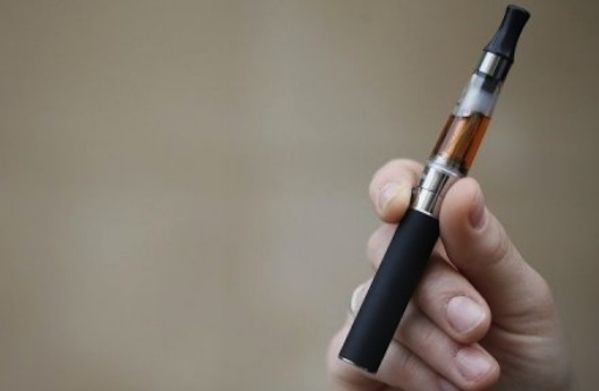Smokers of e-cigarettes are facing tough times right now and it’s about to get worse as the federal government is stepping in to regulate these alternatives to traditional tobacco cigarettes.
The Food and Drug Administration is flexing its regulatory authority over them by announcing new provisions that would prevent minors from purchasing these products and prohibit e-cigarettes from being sold in vending machines or being passed out as free samples.
We have reported that e-cigarettes are the new frontier in the nanny state wars. Colleges and universities are banning them on their campuses. Cities and towns are also deciding how to deal with them.
Until now, these recently developed products have flown under the radar. They are battery-operated and don’t use tobacco, but turn nicotine into vapor which a smoker can inhale to achieve the same affect. Therefore, they are considered and marketed as a safer, healthier alternative to traditional cigarettes. They were created in China in the mid-2000s but recently gained popularity in the United States, particularly among young, perhaps because they boast exotic and appealing flavors.
Public and school officials as well as public health advocates have raised alarm and urged the FDA to act. The FDA has responded with these new regulations.
Politico reports:
Commissioner Margaret Hamburg called the rule “a historic moment for the FDA.” During a press briefing Wednesday, she noted that the proposal lays the foundation for further control of e-cigarettes as well as cigars, another currently unregulated tobacco product that also would be covered by the rule.
…
In an industry with U.S. sales now estimated at $1.5 billion annually, e-cigarette companies say they welcome federal regulation. Many have supported bans on sales of their products to minors and say they would like to see the same at the federal level.
…
The FDA would include e-cigarettes, cigars and the additional items in several provisions that apply to regulated tobacco products, including age and identification requirements to restrict sales to youth under 18 and prohibitions on free samples and vending machine sales. These provisions would go into effect 30 days after the final rule is released.
…
The proposed rule is likely to be controversial for failing to limit online sales or television advertising. Nor would the FDA categorically ban flavoring. Cigars and e-cigarettes come in fruity flavors like peach and cherry that public health advocates say are especially appealing to minors.
The industry seems ready to embrace the new restrictions and anti-tobacco advocates now have reason to cheer, but the question still remains why the strong negative reaction to these products? If e-cigarettes don’t contain tobacco and their cancer-causing agents, why is the FDA trying to get them lumped in with other tobacco products?
I have made my dislike of smoking known in the past and still hold those feelings. However, there are habits that are far more destructive and immediately dangerous when consumed than e-cigarettes such as alcohol and drugs. Without taking on the pot legalization issue, one must wonder why recreational pot smoking is more acceptable than e-cigarette smoking?
The focus is on minors –for now. As a cancer advocacy person noted, “It won’t be the beginning of the end of the regulatory process. It will be the end of the beginning of the regulatory process.” Here’s another way of putting it: once the government comes in, it’s impossible to get it out.


